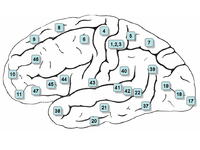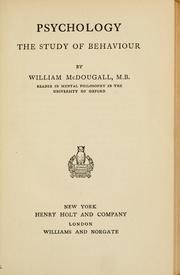
Relatedness and compatibility: The concept of privacy in Mandarin Chinese and American English corpora
Sign Up to like & getrecommendations! Published in 2022 at "Journal of the Association for Information Science and Technology"
DOI: 10.1002/asi.24728
Abstract: This study investigates how privacy as an ethical concept exists in two languages: Mandarin Chinese and American English. The exploration relies on two genres of corpora from 10 years: social media posts and news articles, 2010–2019.… read more here.
Keywords: two languages; chinese american; privacy; concept ... See more keywords

The neural basis of semantic cognition in Mandarin Chinese: A combined fMRI and TMS study
Sign Up to like & getrecommendations! Published in 2019 at "Human Brain Mapping"
DOI: 10.1002/hbm.24781
Abstract: While converging sources of evidence point to the possibility of a large‐scale distributed network for semantic cognition, a consensus regarding the underlying subregions and their specific function in this network has not been reached. In… read more here.
Keywords: mandarin chinese; semantic cognition; neural basis; tms ... See more keywords

Complement Coercion in Mandarin Chinese: Evidence from a Self-paced Reading Study.
Sign Up to like & getrecommendations! Published in 2020 at "Journal of psycholinguistic research"
DOI: 10.1007/s10936-020-09744-1
Abstract: The study aims to explore the processing pattern of Mandarin Chinese sentences with complement coercion. Complement coercion is a known linguistic phenomenon in which some verbs, semantically requiring an event-denoting complement, are combined with an… read more here.
Keywords: mandarin chinese; study; paced reading; complement coercion ... See more keywords

Do double negation structures yield single negation interpretations in Mandarin Chinese? Some comments on Li et al. (2018)
Sign Up to like & getrecommendations! Published in 2018 at "Lingua"
DOI: 10.1016/j.lingua.2018.10.010
Abstract: Abstract Li et al. (2018) claimed that a single negation (SN) interpretation is possible for double negation (DN) structures in Mandarin Chinese (MC) when a DN sentence has a combination of the negation operators mei(yŏu)-mei(yŏu)… read more here.
Keywords: mandarin chinese; double negation; negation; structures yield ... See more keywords

Expressing (inter)subjectivity with universal quantification: A pragmatic account of Plural NP + dou expressions in Mandarin Chinese
Sign Up to like & getrecommendations! Published in 2018 at "Journal of Pragmatics"
DOI: 10.1016/j.pragma.2018.02.003
Abstract: Abstract Dou ‘all, already, even’ is one of the most frequently used adverbs in Mandarin Chinese. While there is a vast literature on the nature and development of this token (widely known as a ‘universal… read more here.
Keywords: mandarin chinese; dou expressions; inter subjectivity;

Speech Representation Used by Mandarin Chinese-Speaking Children Aged Three to Six Years.
Sign Up to like & getrecommendations! Published in 2022 at "Journal of child language"
DOI: 10.1017/s0305000921000866
Abstract: This study investigates how Mandarin Chinese-speaking children use Mandarin Chinese, a language lacking tense markers, to represent characters' speech in their story narratives. Eighty participants, from three to six years of age, completed an elicited… read more here.
Keywords: three six; age; mandarin chinese; chinese speaking ... See more keywords

The common limitations in auditory temporal processing for Mandarin Chinese and Japanese
Sign Up to like & getrecommendations! Published in 2022 at "Scientific Reports"
DOI: 10.1038/s41598-022-06925-x
Abstract: The present investigation focused on how temporal degradation affected intelligibility in two types of languages, i.e., a tonal language (Mandarin Chinese) and a non-tonal language (Japanese). The temporal resolution of common daily-life sentences spoken by… read more here.
Keywords: temporal processing; time; mandarin chinese; speech ... See more keywords

A note on the non-existence of infixes in Mandarin Chinese
Sign Up to like & getrecommendations! Published in 2020 at "WORD"
DOI: 10.1080/00437956.2020.1751975
Abstract: This note examines the so-called infixes in Mandarin Chinese and argues that they can be analyzed as non-infixes. To be specific, the -de/bu 得/不 in potential V-de/bu-R constructions is analyzed as an affix, which merges… read more here.
Keywords: mandarin chinese; infixes mandarin; note non; existence infixes ... See more keywords

Syntactic and semantic processing of passive BEI sentences in Mandarin Chinese: evidence from event-related potentials
Sign Up to like & getrecommendations! Published in 2020 at "NeuroReport"
DOI: 10.1097/wnr.0000000000001507
Abstract: Supplemental Digital Content is available in the text. Scalp-recorded event-related potentials (ERPs) appear to be sensitive to sentence processing, especially in some particular aspects. ERP studies on inflectional Indo-European languages report that N400 (negativity around… read more here.
Keywords: mandarin chinese; processing; syntactic semantic; event related ... See more keywords

Development and Validation of a Mandarin Chinese Adaptation of AzBio Sentence Test (CMnBio)
Sign Up to like & getrecommendations! Published in 2022 at "Trends in Hearing"
DOI: 10.1177/23312165221134007
Abstract: A new sentence recognition test in Mandarin Chinese was developed and validated following the principles and procedures of development of the English AzBio sentence materials. The study was conducted in two stages. In the first… read more here.
Keywords: recognition; development; test; mandarin chinese ... See more keywords

Children’s Interpretation of Ambiguous wh-Adjuncts in Mandarin Chinese
Sign Up to like & getrecommendations! Published in 2020 at "Frontiers in Psychology"
DOI: 10.3389/fpsyg.2020.01781
Abstract: The paper reports two studies investigating children’s acquisition of the wh-adjunct zenme in Mandarin. Unlike other Mandarin wh-words that correspond to a single meaning, zenme can be used to question either the manner or the… read more here.
Keywords: interpretation ambiguous; mandarin chinese; manner; ambiguous adjuncts ... See more keywords